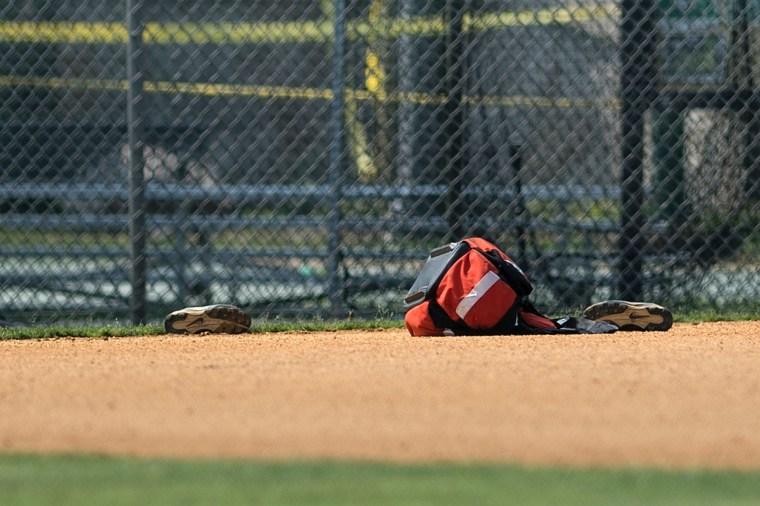WASHINGTON — When reports first surfaced last Wednesday that shots had been fired on Republican lawmakers at a congressional baseball practice, Americans expressed shock and horror.
And then, many wearily braced for what they knew would happen next: Politics taking over.
Data from this month’s NBC News/Wall Street Journal poll shows that partisan identity significantly affected how Americans viewed the tragedy.
Asked if extreme political rhetoric was an important contributor to the shooting or whether it was an isolated incident carried out by a disturbed individual, the public overall was closely divided. Forty-one percent cited political rhetoric, while 46 percent said the shooting was an isolated case.
But Republicans and Democrats saw things differently.

By a 20 point margin, 52 percent to 32 percent, more Republicans than Democrats called the shooting a result of political rhetoric. A majority of Democrats — 55 percent — called it an isolated incident, while 37 percent of Republicans said the same.
“A shocking event like last week’s shooting at a baseball field is seen in totally partisan terms that seems to drive the nation farther apart instead of closer together, with each 'side' having a different version of the same event,” said Democratic pollster Fred Yang, who conducted the survey along with Republican pollster Bill McInturff.
The stage for this partisan divide was set as early as the afternoon after the chaos of the shooting shook Washington D.C.
Rumors quickly surfaced — and were soon bolstered by witness statements to investigators — that upon arriving at the ball field, the shooter asked people: "Are these the Republicans or the Democrats?"
Despite shows of bipartisan unity from lawmakers like Minority Leader Nancy Pelosi and House Speaker Paul Ryan, as well as from President Donald Trump, bickering erupted elsewhere in the political arena. Several prominent Republican commentators, like former House Speaker Newt Gingrich, blamed the act on “an increasing intensity of hostility on the left.”
A Republican group used graphic footage from the aftermath of the shooting in an ad targeting a Democratic House candidate, and a GOP official involved in the race acknowledged the shooting could help their side win. A Democratic official in Nebraska was fired after being caught on tape saying he was “glad” Republican Rep. Steve Scalise was shot. And yet another debate over gun control ricocheted around social media.
It’s a pattern that’s played out before in American politics.
In 2011, after Democratic Rep. Gabby Giffords was shot at a campaign event, a rumor — later debunked but still persistent years later — circulated that Giffords’ attacker was in some way incited by an image circulated by Sarah Palin’s PAC.

That idea was dismissed by investigators, who quickly determined that Giffords’ assailant, Jared Lee Loughner, had profound mental illness. Investigators also determined that he had become preoccupied with Giffords back in 2007 and — unlike the baseball shooter — did not have identifiable coherent political beliefs.
Public polling largely reflected their assessment. In fact, the country was fairly united in believing that Loughner did not act because of political rhetoric. Seven-in-ten Americans (71 percent) said Giffords’ shooting was an isolated incident, while just 24 percent said rhetoric was a major factor.
Still, elements of partisanship remained.
While 35 percent of Democrats cited political rhetoric as a cause of Loughner’s actions, just 12 percent of Republicans said the same.
The NBC/WSJ poll was conducted June 17-20 of 900 adults — including more than 400 by cell phone — and it has an overall margin of error of plus-minus 3.3 percentage points.

